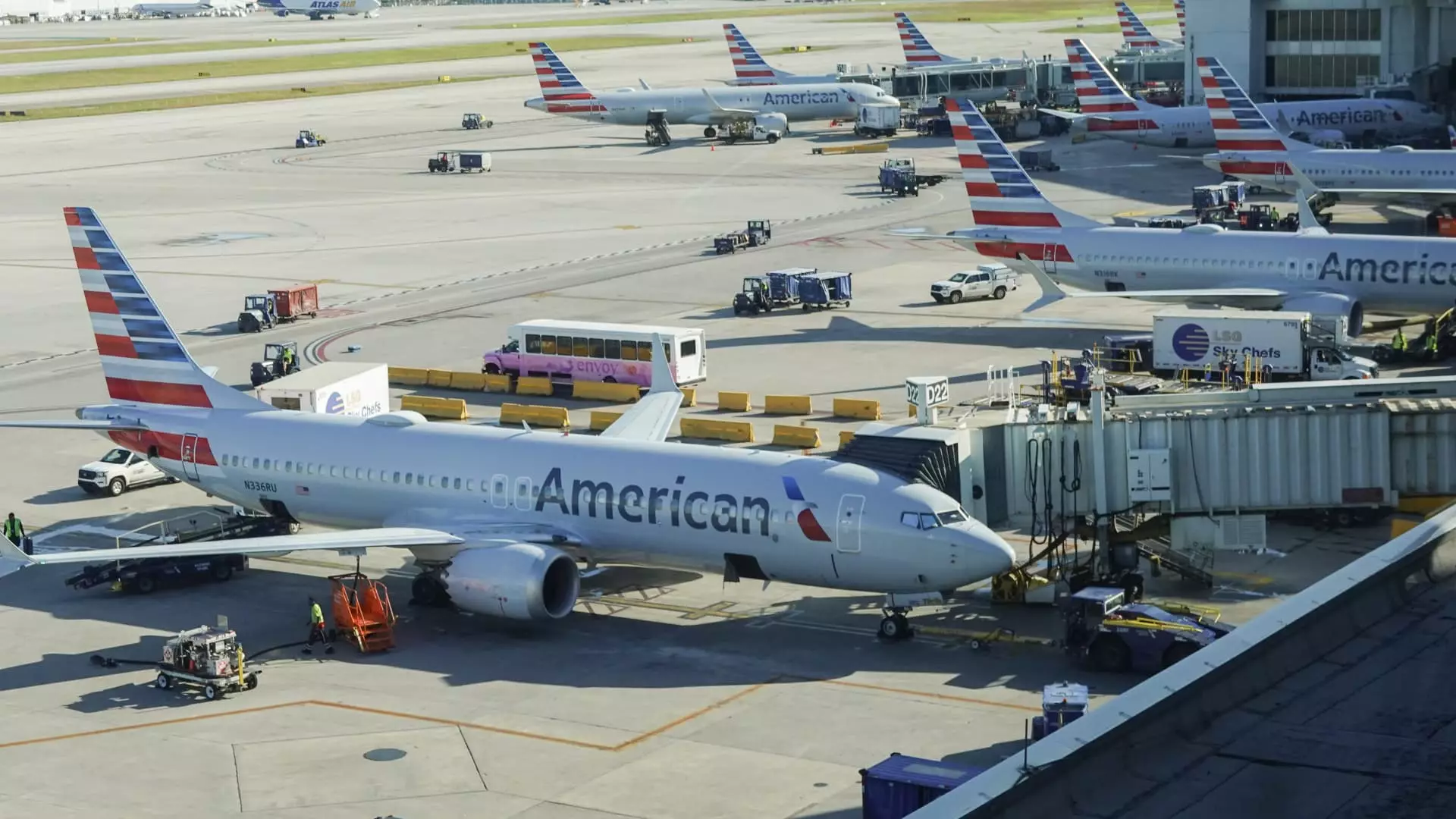On a busy holiday morning, American Airlines experienced a significant operational challenge that led to the temporary grounding of all its U.S. flights. The disruption occurred on Tuesday morning, affecting travelers during what is expected to be a peak season for holiday travel. The unexpected glitch was linked to a technical issue, which had the potential to create substantial inconvenience for passengers eager to reach their destinations. However, the situation was resolved relatively quickly, with operations resuming by 7:55 a.m. ET, according to statements from an American Airlines spokesperson.
American Airlines identified the root cause of the disruption as a network hardware issue associated with a platform supported by DXC Technology. This platform is integral to the airline’s flight operating system, which collects and analyzes essential data—most notably, an aircraft’s weight and balance—both of which are critical before a flight departs. Such technical failures underscore the fragility of the technological backbone that airlines operate on, highlighting the serious implications any glitches can have on the traveling public. Thankfully, the airline communicated that all issues had been resolved promptly, but the swift onset of the problem reveals vulnerabilities in the operational protocols that airlines rely upon.
The Federal Aviation Administration (FAA) confirmed that the ground stop had been instituted at the request of American Airlines, which aimed to prevent an influx of flights arriving at destination airports without adequate gate availability. Ground stops are not uncommon and are often implemented to manage both technical issues and severe weather conditions. This specific instance emphasizes the strategic mechanics behind flight management. Given the high volume of travelers during the holiday season, preventing airport congestion is a crucial aspect of maintaining operational integrity.
American Airlines’ recent technical glitch has brought into sharp focus the ongoing challenges that airlines face with their technology infrastructure. Events such as the well-documented complications experienced by Southwest Airlines during the holiday season of 2022 and Delta Air Lines’ difficulties following the CrowdStrike outage in the summer of this year have ignited discussions regarding the robustness of these essential systems. Frequent travelers are likely becoming more aware of how fragile these networks can be, prompting questions about the resilience and reliability of air travel in modern times.
Despite the urgency of the situation and the potential for widespread delays, American Airlines managed to maintain its schedule without reported cancellations linked to the issue. It serves as a reminder that while disruptions can be part of the travel experience, swift action and resolution can mitigate extensive fallout. The airline’s apology to its customers showcases an important aspect of customer relations, emphasizing the need for transparency and accountability in the face of operational challenges. As the holiday season continues, both airlines and their passengers must remain vigilant, adapting to the complexities and unexpected hurdles that come with air travel during peak periods.

Leave a Reply